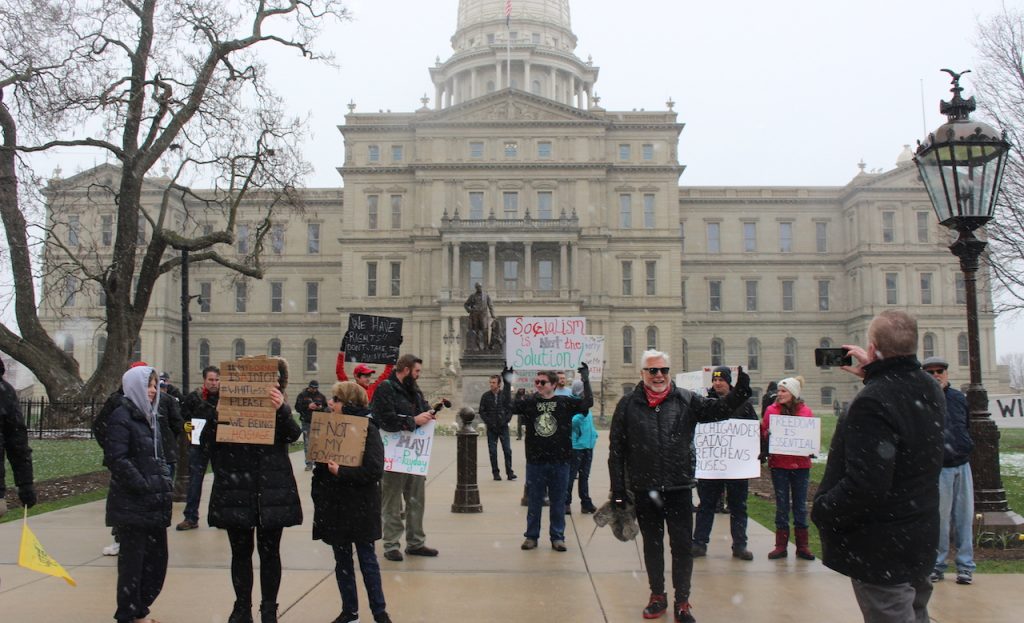How Pandemic Politics Have Made Public Health Response More Difficult
Politicians have taken advantage of opportunities to drive wedges during the pandemic, compromising our collective ability to get through it.

Throughout the pandemic, one of the biggest challenges for public health officials has been the state — and nation’s — toxic political environment.
As part of the weekly series MichMash, Slate’s Cheyna Roth and WDET’s Jake Neher talk about efforts to politicize this health crisis, and why those efforts could have lasting impacts on public health and policymaking.
Subscribe to MichMash on iTunes, Spotify, Google Podcasts, NPR One or wherever you get your podcasts.
At the beginning of the pandemic a year ago, Neher remembers thinking that the COVID-19 crisis could go one of two ways.
“Crises of this scale have a tendency to bring people together, at least for a little while,” he says. “So I thought, you know, there’s a possibility we might all band together and do what was needed to get through an unprecedented time, or, what I admitted at the time was more likely, politicians would fully politicize it, and it would turn into a social and political nightmare.”
Unfortunately, the latter turned out to be true.
Roth found herself wondering how things would have been different if the politicians had managed to treat COVID-19 just as a public health emergency.
“We weren’t really seeing sometimes facts and science coming out, again, from the top levels of government in the country. And so that was really concerning. And I think it made it more difficult.” — Dr. Joneigh Khaldun, Michigan’s chief medical executive
One of the most consistent faces of the public health response to the coronavirus pandemic in Michigan has been Dr. Joneigh Khaldun. She is the state’s chief medical executive, and has been at almost every press conference held by Gov. Gretchen Whitmer on the crisis.
“It’s been tough,” says Khaldun. “You know, we’ve had even at the level of the White House under the Trump administration, just promulgation of things that were not factual. We weren’t really seeing sometimes facts and science coming out, again, from the top levels of government in the country. And so that was really concerning. And I think it made it more difficult.”
The politicization has affected numerous responses to the pandemic, from billions of dollars in relief funding to wearing masks.
There’s also a question of what the coronavirus has done to relationships between Republicans and Democrats. Early in the pandemic, Republicans fought against Democrats about how to handle the response to the coronavirus, especially in Michigan.
Whitmer has constantly defended her use of emergency powers for things like restaurant seating limitations, school closures and mask mandates against Republican naysayers.
Much of the politicization has come from the Republican Party, and there’s no indication that it’s paid off for them politically. A new poll from NPR shows 62% of Americans approve of President Joe Biden’s handling of the pandemic. That roughly mirrors polls we’ve seen here in Michigan in terms of the percentage of Michiganders who approve of Whitmer’s response throughout the pandemic. Republicans also saw huge losses in the last election at the federal level, losing the White House and Senate.
Trusted, accurate, up-to-date
WDET is here to keep you informed on essential information, news and resources related to COVID-19.
This is a stressful, insecure time for many. So it’s more important than ever for you, our listeners and readers, who are able to donate to keep supporting WDET’s mission. Please make a gift today.
